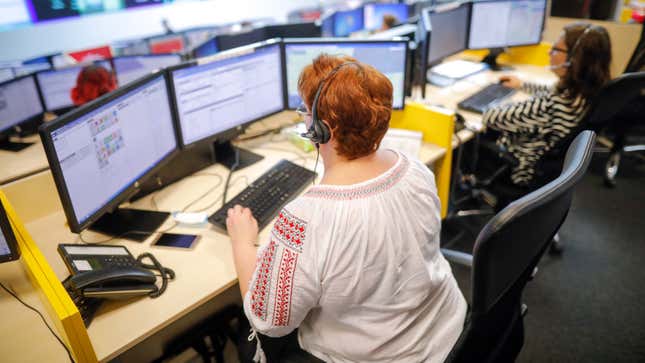
Across the country, people suffering from mental health crises often find themselves confronted with an armed police officer instead of a mental health professional who is better suited to support them. Oakland City Council is set to approve a pilot program in which 911 operators can direct trained civilians to handle mental health calls.
The Appeal reports that MACRO—Mobile Assistance Community Responders of Oakland—will be implemented in a small East Oakland area. Activists say it is a good start towards separating cops from 911 calls that could escalate into shootings or other uses of force against residents.
“We don’t want [police] involved in these calls because we’re sick of the death count,” said Cathy Leonard, a member of the Coalition for Police Accountability, which has been pushing the city for a MACRO-like program since 2019. “We need resident-centered responses.”
It will take months before the pilot begins.
Here are a few details on MACRO:
Other mental health-oriented emergency response programs already operate in Alameda County, which includes Oakland, but those programs are staffed by licensed clinicians who respond in tandem with police. MACRO will function as a police-free program within the Oakland Fire Department. It will be staffed by two-person teams of emergency medical technicians and trained community members who advocates say are more equipped to respond to 911 calls about matters like public urination, erratic behavior, and welfare checks. The final structure of the program remains unclear, as the fire department and stakeholders hash out the details over the coming months.
Because the city of Oakland faces a pandemic-fueled budget crisis, the $1.85 million in MACRO funding is far smaller than the original vision, which was outlined in a report by the Urban Strategies Council and called for $3.09 million to employ 24 people. But City Council members say this new pilot is an important part of Oakland’s goal of reducing the over $300 million police department budget by 50 percent.
The pilot is one of the efforts at the community level that activists are fighting to nationalize.
Thirty-seven percent of people in federal jails or prisons have some form of mental illness, according to the Prison Policy Initiative. Twenty-seven percent of people shot by cops had a mental health issue and 44 percent of local jail populations are comprised of folks with mental illnesses.

